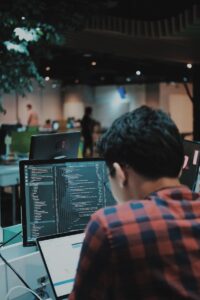Enhancing Fairness and Preventing Biases in AI Systems
The Role of Diverse Teams in AI Development
Diverse teams in AI development play a crucial role in enhancing the fairness of AI systems and preventing biases that can arise from homogenous groups. In the rapidly evolving technological landscapes of Saudi Arabia and the UAE, fostering diversity within AI development teams is not just a moral imperative but a strategic advantage. Diverse teams bring a range of perspectives, experiences, and insights that are essential for identifying and mitigating biases that may be overlooked by more uniform groups.
Biases in AI can lead to unfair outcomes, such as discrimination in hiring processes, biased lending decisions, and unequal access to services. These biases often stem from the data used to train AI systems and the perspectives of the developers themselves. For business executives and mid-level managers in Riyadh and Dubai, building diverse teams is a proactive step towards creating more equitable AI systems. By including individuals from different genders, ethnicities, and socio-economic backgrounds, organizations can ensure that AI systems consider a broader range of scenarios and user needs.
Moreover, diverse teams are better equipped to challenge assumptions and question the status quo, leading to more innovative and robust AI solutions. In the context of AI development, this means that diverse teams can identify potential biases early in the development process and implement measures to address them. For entrepreneurs and business leaders in the UAE and Saudi Arabia, prioritizing diversity in AI development is essential for building trust with users and stakeholders and ensuring the long-term success of AI initiatives.
Strategies for Building Diverse AI Development Teams
Building diverse AI development teams requires a deliberate and strategic approach. For organizations in Saudi Arabia and the UAE, this involves implementing policies and practices that promote inclusivity and equal opportunities. One effective strategy is to establish diversity and inclusion (D&I) programs that focus on recruiting, retaining, and advancing diverse talent within the organization.
Recruitment efforts should target diverse candidate pools by partnering with educational institutions, professional associations, and community organizations that serve underrepresented groups. Additionally, organizations should consider implementing blind recruitment processes to reduce unconscious biases in hiring decisions. For business leaders in Riyadh and Dubai, investing in diversity-focused recruitment initiatives can help attract top talent from a variety of backgrounds, enhancing the overall capabilities of the AI development team.
Retention and advancement programs are equally important for maintaining a diverse workforce. Providing mentorship and sponsorship opportunities, offering diversity training, and creating a supportive work environment are key factors in retaining diverse talent. For mid-level managers, fostering an inclusive culture where all employees feel valued and empowered to contribute is crucial for maximizing the benefits of diversity in AI development. By implementing these strategies, organizations can build and sustain diverse AI development teams that drive innovation and ensure fairness in AI systems.
Leveraging Technology to Support Diversity in AI Development
Leveraging technology to support diversity in AI development can enhance the effectiveness of diversity and inclusion efforts. For organizations in Saudi Arabia and the UAE, utilizing AI and data analytics to monitor and measure diversity metrics can provide valuable insights into the effectiveness of D&I programs. These technologies can help identify areas for improvement and track progress towards diversity goals.
AI-powered tools can also be used to reduce biases in recruitment and performance evaluations. For example, AI algorithms can analyze job descriptions to identify and eliminate biased language that may deter diverse candidates. Similarly, AI can be used to evaluate performance data objectively, ensuring that all employees are assessed fairly based on their skills and contributions. By integrating these tools into their HR processes, organizations can create a more equitable work environment and support the development of diverse AI teams.
Moreover, AI and blockchain technologies can enhance transparency and accountability in AI development. Blockchain can provide a secure and immutable record of decisions and actions taken during the AI development process, ensuring that all steps are documented and can be audited. This transparency can help identify and address biases, fostering greater trust in AI systems. For business leaders in Riyadh and Dubai, adopting these technologies can demonstrate a commitment to ethical AI development and strengthen stakeholder confidence.
Best Practices for Ensuring Fairness in AI Systems
Implementing Ethical AI Frameworks
Implementing ethical AI frameworks is essential for ensuring fairness in AI systems. These frameworks should outline the principles and guidelines that govern the development and deployment of AI technologies, emphasizing the importance of fairness, accountability, and transparency. For organizations in Saudi Arabia and the UAE, developing a comprehensive ethical AI framework can provide a clear roadmap for creating unbiased AI systems.
Ethical AI frameworks should include guidelines for data collection and usage, ensuring that data sets are representative and free from biases. This involves using diverse and inclusive data sources and regularly auditing data sets for potential biases. For business executives and mid-level managers, ensuring that data governance practices align with ethical standards is crucial for mitigating biases in AI systems.
Additionally, ethical AI frameworks should establish protocols for continuous monitoring and evaluation of AI systems. This includes conducting regular bias assessments, testing AI models in real-world scenarios, and implementing feedback mechanisms to address any issues that arise. By adopting a proactive approach to ethical AI development, organizations can identify and mitigate biases early, ensuring that AI systems operate fairly and equitably.
Promoting Continuous Learning and Development
Promoting continuous learning and development within AI development teams is key to ensuring that AI systems remain fair and unbiased. For organizations in Saudi Arabia and the UAE, providing ongoing training and professional development opportunities can help team members stay informed about the latest advancements and best practices in AI ethics and fairness.
Training programs should cover topics such as bias detection and mitigation, ethical AI principles, and inclusive design practices. These programs can be delivered through workshops, online courses, and industry conferences, providing team members with the knowledge and skills needed to develop fair AI systems. For business leaders in Riyadh and Dubai, investing in continuous learning and development is essential for maintaining a competitive edge and fostering a culture of ethical AI development.
In addition to formal training programs, organizations should encourage a culture of continuous improvement and innovation. This involves creating an environment where team members feel empowered to experiment, share ideas, and challenge assumptions. By fostering a collaborative and inclusive culture, organizations can drive innovation and ensure that AI systems are developed with fairness and inclusivity in mind.
Engaging with Stakeholders to Promote Fairness
Engaging with stakeholders is essential for promoting fairness in AI systems. For organizations in Saudi Arabia and the UAE, this involves maintaining open and transparent communication with customers, partners, and regulatory authorities about AI development practices. By engaging with stakeholders, organizations can gain valuable insights into their concerns and expectations, ensuring that AI systems are designed to meet diverse needs.
Organizations should establish channels for stakeholders to provide feedback on AI systems and report any issues related to fairness or bias. This feedback can be used to inform continuous improvement efforts and ensure that AI systems operate fairly. For business leaders in Riyadh and Dubai, demonstrating a commitment to stakeholder engagement can enhance trust and strengthen relationships with customers and partners.
Furthermore, organizations should collaborate with industry associations, academic institutions, and regulatory bodies to promote best practices for ethical AI development. By participating in industry forums and working groups, organizations can stay informed about emerging trends and contribute to the advancement of AI ethics and fairness. Engaging with the broader AI community can help organizations align their practices with global standards and ensure that AI systems are developed with fairness and inclusivity at the forefront.
Conclusion: Achieving Fairness in AI Through Diverse Teams
Ensuring fairness in AI systems requires a comprehensive approach that includes building diverse AI development teams, implementing ethical AI frameworks, and engaging with stakeholders. For organizations in Saudi Arabia and the UAE, fostering diversity within AI teams is crucial for identifying and mitigating biases, driving innovation, and maintaining public trust.
By developing inclusive recruitment and retention strategies, leveraging advanced technologies, and promoting continuous learning and development, organizations can build diverse AI teams that are equipped to create fair and unbiased AI systems. Engaging with stakeholders and maintaining open communication further enhances transparency and accountability, ensuring that AI systems meet diverse needs and operate ethically.
Through these efforts, organizations can achieve success in the digital age while upholding the highest standards of fairness and inclusivity in AI development.
—
#DiverseTeamsInAIDevelopment, #AIFairness, #PreventingBiasesInAI, #ArtificialIntelligence, #InclusiveAI, #ModernTechnology, #BusinessSuccess, #LeadershipSkills, #ProjectManagement, #SaudiArabia, #UAE, #Riyadh, #Dubai













